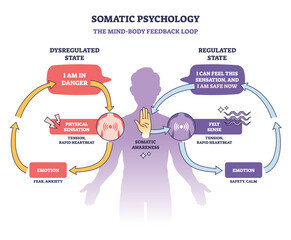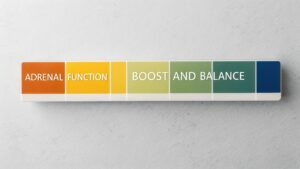Suicide is a complex and devastating public health issue, impacting millions of lives worldwide each year. While the causes of suicide are multifaceted, emerging research has shed light on the potential role of nutrition in mental health and suicide risk. It is becoming increasingly evident that what we eat and our nutritional status can have a profound impact on our emotional well-being. When any of my clients have thoughts of self-harm, I always check their nutritional risk factors to determine if there is anything going on biologically that may be influencing their mood.
Vitamin D
Over the past decade, I’ve encountered a surprisingly low number of clients, a paltry 31, who had normal vitamin D levels (yes, I keep track, and yes, I know it’s odd that I do so). This statistic doesn’t come as a great shock since vitamin D primarily comes from sunlight exposure, and living in Illinois means limited chances for that. However, I do find it noteworthy to check for low vitamin D levels when someone presents with suicidal thoughts. Why? Simply put, vitamin D plays a crucial role in regulating neurotransmitters like dopamine, which can uplift mood, and also in modulating inflammation—a risk factor for both depression and suicide.[1][2]
Omega-3 Fatty Acids
If you think the number of normal vitamin D levels I’ve seen is low, prepare yourself! I’ve seen less than 5 normal Omega-3 Index findings in my entire career. The Omega-3 index is a calculation of different types of omega-3 fats present in red blood cells, and low levels of this index are a risk factor for conditions ranging from cardiovascular disease to type 2 diabetes, and even acne. Low omega status also is linked to suicidal ideation[3], so it is also something to check when having thoughts of self-harm. Testing for omega-3 levels is often not covered by insurance without cause, so if my client’s aren’t eating foods high in omega-3s, like fatty fish, flax seeds and walnuts, I’ll add an omega-3 supplement to their recommendations.
Cholesterol
For those of you who were around back when cholesterol was seen as bad, and we thought low fat foods were good for us, guess what? It turns out that having abnormally low cholesterol can lead to suicide risk, so I always request a lipid panel from my client’s primary care physician. Why? Cholesterol is involved in maintaining serotonin levels, and low levels of cholesterol are reported in individuals with suicidal ideation and suicide attempt[4].
Inflammation
Although inflammation isn’t a nutrient like vitamin D or omega-3s, it is critically important to check when someone is having thoughts of self-harm. Inflammation is a natural and necessary process that occurs in the body as a response to injury, infection, or harmful stimuli. It is part of the body’s defense mechanism to protect and repair tissues that have been damaged. In short – inflammation is a great thing to help heal when you’ve injured yourself playing Pickleball, but incredibly damaging when it becomes long-lasting and chronic due to certain conditions, poor diet, lack of physical activity or exposure to environmental factors.
Inflammation has been linked to suicidal ideation, so whenever a client experiences thoughts, one of the first things I do is ask their physician for a CRP[5] (a marker of chronic inflammation in the body), and then use anti-inflammatory foods like olive oil and supplements like turmeric to lessen the load. One thing to keep in mind – your physician will likely agree to run a CRP, but this is not the only marker of inflammation that appears to influence suicidal ideation. Inflammatory cytokines like IL-6, TNF-alpha, and other risk factors also exist[6], so if your CRP comes back normal, don’t assume that inflammation isn’t present.
Next Steps
If you or someone you love is experiencing suicidal ideation, first make an appointment with your therapy provider at Illuminate Therapy & Wellness. After that, consider whether a visit to a nutrition provider who specializes in mental health nutrition is worthwhile to rule out biological risk factors to suicide. In the pursuit of preventing suicide and promoting mental well-being, it is essential to recognize the importance of nutrition as a powerful ally. By taking steps to improve the nutritional status of individuals at risk, we can create a brighter future where mental health is nurtured, supported, and prioritized.
Meg Bowman MS CNS LDN CHES
Co-Founder
Nutrition Hive & Clinician’s Incubator
meg@nutritionhive.health
[1] Grudet C., Wolkowitz O.M., Mellon S.H., Malm J., Reus V.I., Brundin L., Nier B.M., Dhabhar F.S., Hough C.M., Westrin Å., et al. Vitamin D and Inflammation in Major Depressive Disorder. J. Affect. Disord. 2020;267:33–41.
[2] Lindqvist D., Dhabhar F.S., James S.J., Hough C.M., Jain F.A., Bersani F.S., Reus V.I., Verhoeven J.E., Epel E.S., Mahan L., et al. Oxidative Stress, Inflammation and Treatment Response in Major Depression. Psychoneuroendocrinology. 2017;76:197–205.
[3] Sublette ME, Hibbeln JR, Galfalvy H, Oquendo MA, Mann JJ. Omega-3 polyunsaturated essential fatty acid status as a predictor of future suicide risk. Am J Psychiatry. 2006 Jun;163(6):1100-2. doi: 10.1176/ajp.2006.163.6.1100. PMID: 16741213.
[4] Reuter C, Caldwell B, Basehore H (2017) Evaluation of cholesterol as a biomarker for suicidality in a veteran sample. Res Nurs Health 40:341–349.
[5] Park RJ, Kim YH (2017) Association between high sensitivity CRP and suicidal ideation in the Korean general population. Eur Neuropsychopharmacol 27:885–891.
[6] Keaton SA, Madaj ZB, Heilman P, Smart L, Grit J, Gibbons R, Postolache TT, Roaten K, Achtyes ED, Brundin L (2019) An inflammatory profile linked to increased suicide risk. J Affect Disord 247:57–65.




